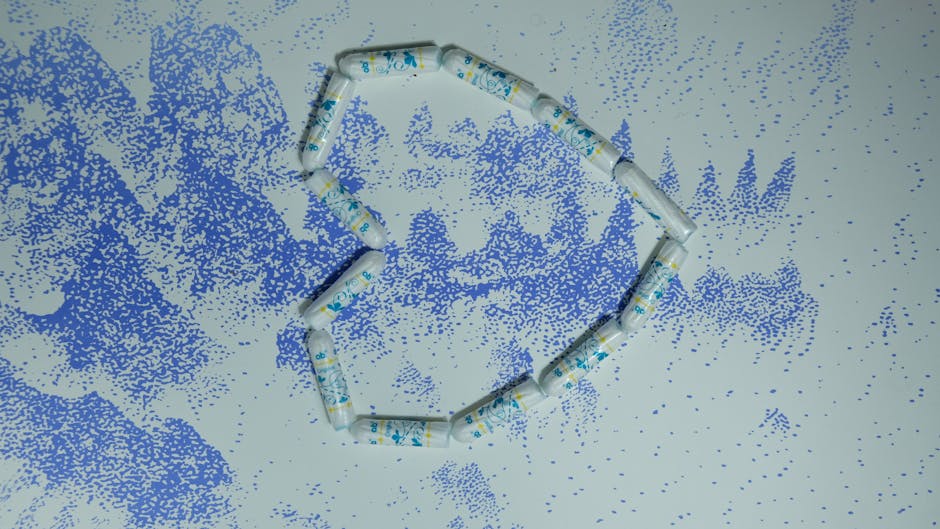The Importance of Regular Health Checkups
When was the last time you scheduled a comprehensive health checkup? Many of us tend to overlook the importance of regular screenings and checkups until a health issue arises. However, preventive healthcare plays a crucial role in maintaining overall well-being and catching potential health concerns early on.
In this article, we will delve into the significance of regular health checkups, exploring the various aspects that make it an essential component of a healthy lifestyle. From understanding the benefits of preventive care to discussing the types of screenings available, we will uncover why prioritizing routine checkups is key to long-term health.
The Benefits of Preventive Care

Preventive care involves taking proactive measures to maintain good health and prevent diseases before they develop or worsen. Regular health checkups are a cornerstone of preventive care, as they allow healthcare providers to assess your overall health, detect potential issues early, and recommend appropriate interventions.
One of the primary benefits of preventive care is the early detection of health conditions. Many diseases, such as cancer, heart disease, and diabetes, show few or no symptoms in their early stages. By undergoing routine screenings and checkups, healthcare providers can identify these conditions before they progress, increasing the chances of successful treatment.
Moreover, preventive care helps individuals take control of their health by promoting healthy lifestyle choices. During a checkup, healthcare providers may offer guidance on nutrition, exercise, stress management, and other lifestyle factors that can impact overall well-being. By receiving personalized recommendations, individuals can make informed decisions to improve their health outcomes.
The Role of Routine Screenings

Routine screenings are an essential component of regular health checkups, as they help identify risk factors and detect diseases in their early stages. Some common screenings recommended for adults include blood pressure measurements, cholesterol tests, blood sugar tests, and cancer screenings such as mammograms and colonoscopies.
Screenings are tailored to individual risk factors, age, gender, and family history. For example, women may be advised to undergo regular Pap smears and mammograms to screen for cervical and breast cancer, while men may need prostate cancer screenings. By following recommended screening guidelines, individuals can detect potential health issues early and take appropriate action.
It is important to note that not all screenings are necessary for everyone, and recommendations may vary based on individual factors. Healthcare providers can assess your risk profile and recommend the appropriate screenings based on your age, gender, lifestyle, and medical history.
Understanding Preventive Services

In addition to routine screenings, preventive services play a crucial role in maintaining good health and preventing diseases. Preventive services encompass a wide range of interventions aimed at promoting health and well-being, including vaccinations, counseling, and health education.
Vaccinations are a key component of preventive care, as they help protect individuals from infectious diseases such as influenza, measles, and hepatitis. By staying up to date on recommended vaccines, individuals can reduce their risk of contracting preventable illnesses and protect vulnerable populations, such as young children and the elderly.
Counseling and health education are also integral to preventive care, as they empower individuals to make informed decisions about their health. Healthcare providers may offer counseling on topics such as smoking cessation, weight management, and mental health to help individuals adopt healthy behaviors and reduce their risk of developing chronic conditions.
The Importance of Regular Checkups for Chronic Conditions

For individuals living with chronic conditions such as diabetes, hypertension, or asthma, regular health checkups are especially important. Chronic conditions require ongoing management and monitoring to prevent complications and ensure optimal health outcomes.
During regular checkups, healthcare providers can assess the progression of chronic conditions, adjust treatment plans as needed, and provide guidance on managing symptoms and lifestyle factors. By monitoring key indicators such as blood sugar levels, blood pressure, and lung function, healthcare providers can help individuals maintain stable health and prevent acute exacerbations.
Moreover, regular checkups provide an opportunity for individuals with chronic conditions to address any concerns or questions they may have about their health. By establishing open communication with healthcare providers, individuals can receive personalized care and support tailored to their unique needs.
Barriers to Accessing Regular Health Checkups
Despite the importance of regular health checkups, many individuals face barriers to accessing preventive care. Some common barriers include lack of health insurance, financial constraints, limited access to healthcare providers, and competing priorities such as work and family responsibilities.
Individuals without health insurance may forgo preventive care due to cost concerns, leading to delayed or missed screenings and checkups. Moreover, individuals living in rural or underserved areas may have limited access to healthcare providers, making it challenging to schedule regular appointments for preventive services.
To address these barriers, policymakers, healthcare providers, and advocacy organizations are working to expand access to preventive care services and promote health equity. Initiatives such as community health fairs, mobile health clinics, and telehealth services aim to reach underserved populations and provide essential preventive care services to those in need.
Expert Opinions on Regular Health Checkups
We reached out to Dr. Sarah Jones, a primary care physician with expertise in preventive care, to gather insights on the importance of regular health checkups. According to Dr. Jones, “Regular checkups are essential for maintaining good health and catching potential issues early. By staying proactive about your health and following recommended screenings, you can prevent diseases and improve your overall well-being.”
Dr. Jones emphasized the role of healthcare providers in guiding patients on preventive care and lifestyle modifications. “As healthcare providers, we aim to empower patients to take control of their health by providing personalized recommendations and support. By working together, we can create a proactive approach to healthcare that prioritizes prevention and wellness.”
Common Misconceptions About Regular Health Checkups
Despite the numerous benefits of regular health checkups, there are some common misconceptions that may deter individuals from scheduling preventive care appointments. One prevalent misconception is that checkups are only necessary when you are sick or experiencing symptoms.
In reality, regular health checkups are designed to prevent diseases and identify risk factors before they manifest as symptoms. By undergoing routine screenings and assessments, individuals can stay ahead of potential health issues and take proactive steps to maintain good health.
Comparative Analysis: Preventive Care vs. Reactive Care
It is important to distinguish between preventive care and reactive care when considering the benefits of regular health checkups. Preventive care focuses on maintaining health, preventing diseases, and detecting potential issues early, while reactive care involves treating existing health problems after symptoms appear.
By prioritizing preventive care through regular health checkups, individuals can reduce their risk of developing chronic conditions, undergo interventions to mitigate risk factors, and stay proactive about their health. In contrast, reactive care may require more intensive treatments, hospitalizations, and long-term management of health issues that could have been prevented through early detection.
Frequently Asked Questions About Regular Health Checkups
1. How often should I schedule a health checkup?
It is recommended to undergo a comprehensive health checkup at least once a year, or more frequently based on individual risk factors and age.
2. What screenings are typically included in a health checkup?
Screenings may vary based on age, gender, and risk factors, but common tests include blood pressure measurements, cholesterol tests, blood sugar tests, and cancer screenings.
3. Are health checkups covered by insurance?
Many health insurance plans cover preventive care services, including health checkups and screenings. It is advisable to check with your insurance provider to understand your coverage.
To Wrap Things Up
Regular health checkups are an essential component of preventive care, allowing individuals to stay proactive about their health, detect potential issues early, and maintain overall well-being. By prioritizing routine screenings, preventive services, and open communication with healthcare providers, individuals can take control of their health and prevent diseases before they develop.
Remember, health is not just the absence of disease but a state of complete physical, mental, and social well-being. Investing in regular health checkups is an investment in your future health and quality of life. Make your health a priority, schedule that checkup, and take the first step towards a healthier you.




